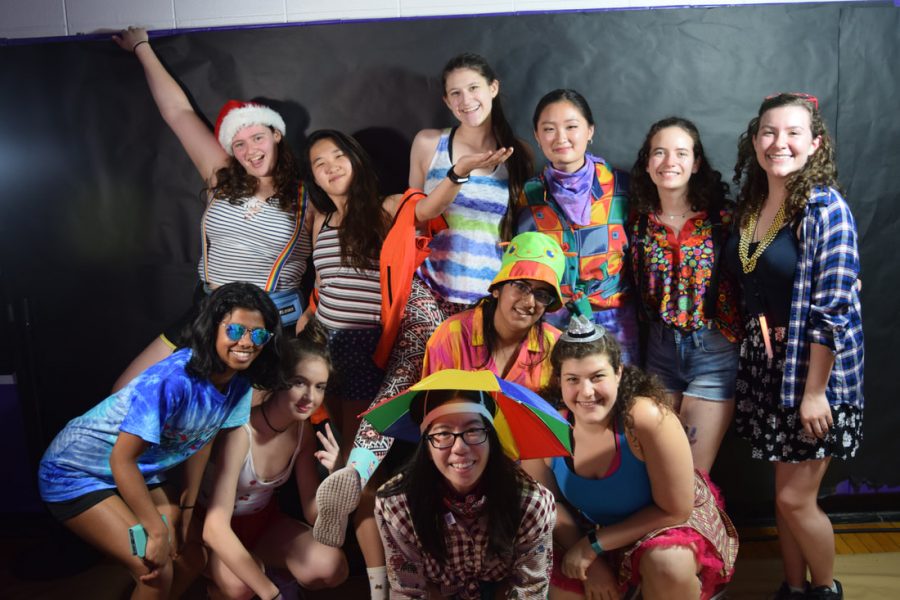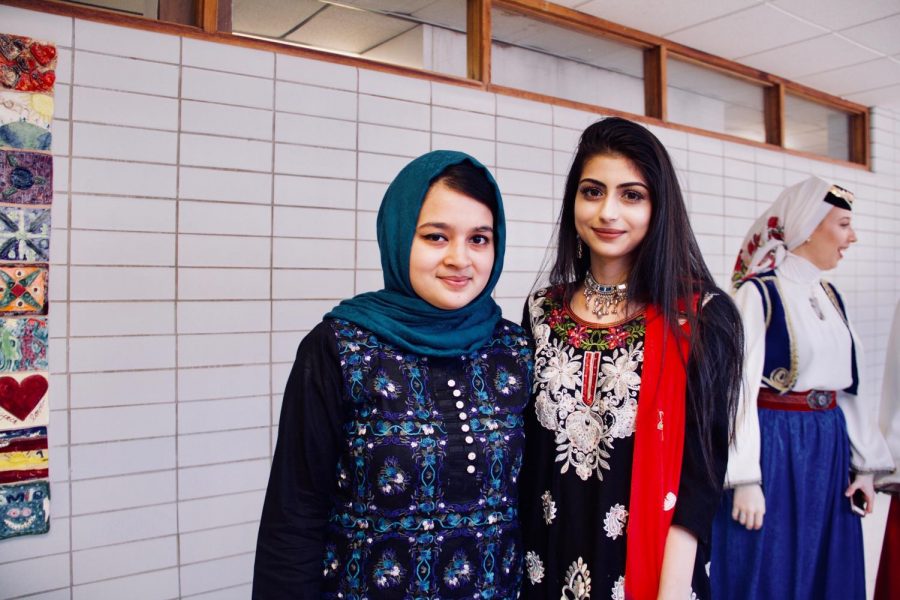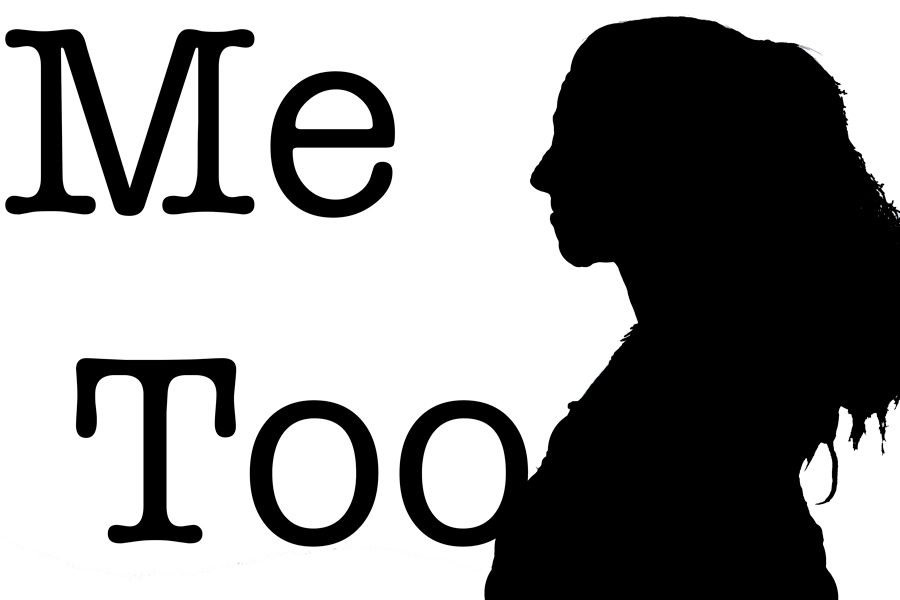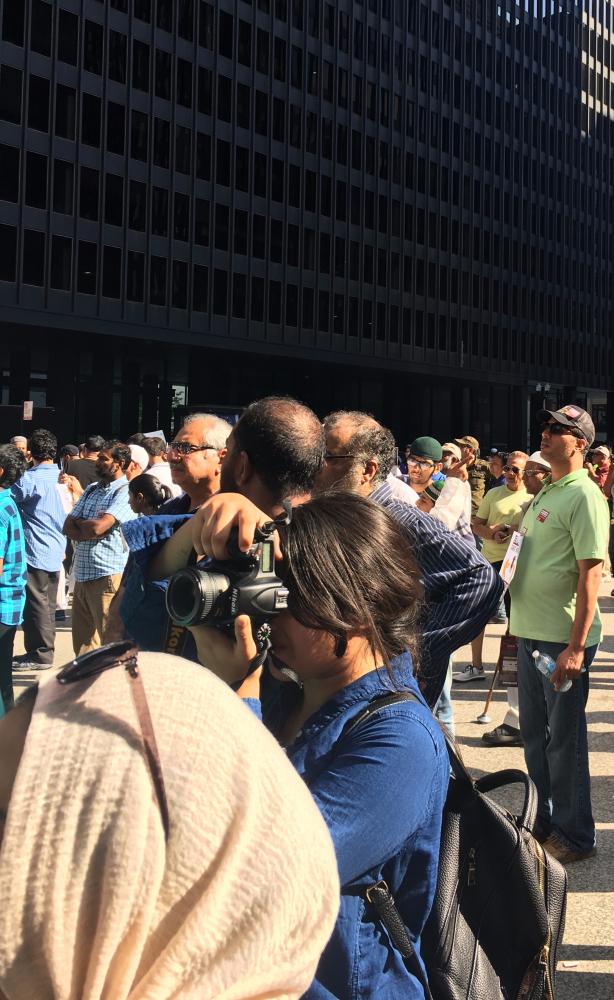Swagfolio 2019: Growth in NSN
May 17, 2019
Before writing for North Star News, my writing was more meant to tell a story. Creative writing was something I was into ever since I was a kid, and unfortunately, I didn’t know how to separate that from other writing. Covering for North Star, writing about events such as the Dance Marathon, writing objective news articles and speaking out about things I believe in are all things that contributed to my progress as a writer overall.
I learned how to stay balanced and objective when reporting an event, which was a challenge at first. Staying without bias in news stories was a challenge at first, but eventually, I learned it. I also learned a lot about photography, and have done a couple of photo collections since. I also did an audio story. This was a major step out of my comfort zone, but it turned out to be for the best.
I did a few opinion stories, and the difference between one I did at the beginning of the year and one I did recently is huge. At first, I sort of just ranted my way through an opinion article. I have learned to channel and filter my passion for specific topics I write about to make the article all the more effective. I also learned to counter-argue in my writing, and understand that ranting is different than writing an opinion article. This has been great for me because as I learned to write better opinion articles, I also learned a lot of things about myself. I learned that there are many issues that need people to speak out about them, and now I know that I want to be one of those people. I surprised myself by being very passionate about issues I didn’t even know I cared that much about.
Finding out more about myself and who I am and what I care about allowed me to find my voice in writing. Instead of sort of being all over the place in terms of tone, I am now confident that if someone who constantly reads my stories looks at a new one, they will know it’s my story even if there is no name on it. That is what I am most proud of, as I will continue using and develop this voice throughout my entire life.
North Star has given me an outlet for my passions and allowed me to find out more about who I am. When looking at the future, I will definitely pursue something in writing, as my experience in North Star was so enjoyable. Journalism is probably the field I will go towards, as well as something in creative writing. I now know how to separate the two, so I feel I can definitely do both. The writing skills I learned in North Star are the ones I will definitely carry with me in the near future.
Artifact 1: [SPOTLIGHT] Audio Story: Animals with Zaki
This was one of the ways I stepped out of my comfort zone this year. I don’t usually do audio stories, and doing this one was surprisingly fun and interesting. I struggled with how I could piece this together and tell a story through voice, which I wasn’t used to. However, after conducting the interview, my brother told his own story and it made it much easier for me to find an angle and put it together.
I learned that stepping out of your comfort zone is not always bad, as it can lead to you doing things you didn’t know you were capable of.
Artifact 2 SPOTLIGHT: [OPINION] Jeff Bezos should save the world, not just Notre Dame

A fire on April 15, 2019, nearly destroyed the Notre Dame cathedral.
May 1, 2019
On April 15, a structure fire broke out in the Notre Dame cathedral in France. In just a couple days, billionaires around the world had pledged over one billion dollars in donations for the reparations.
The show of unity is refreshing, and the donations will likely be more than enough to cover the damage.
Meanwhile, there is a social emergency in France, where protests denounced social and financial inequality. More than 8 million people in France live on less than 954 euros (about 1,063 dollars) a month. (The Borgen Project)
Meanwhile, climate change and environmental pollution threaten to wipe out thousands of people if a change isn’t made in the next couple of years.
Meanwhile, there are humanitarian crises all around the world in several underdeveloped nations, such as those in Syria, Venezuela, and Yemen.
“In just a few hours today, 650 million euros was donated to rebuild Notre Dame,” South Africa-based journalist Simon Allison tweeted. “In six months, just 15 million euros has been pledged to restore Brazil’s National Museum. I think this is what they call white privilege.”
The Notre Dame cathedral is a historical landmark and the people of the area feel an emotional connection to that part of their heritage. Donating money to help repair it is a person’s right and privilege.
However, the rate at which wealthy people were able to donate such a large amount of money for the cathedral brings something important to light. People have such a surplus of money that they are able to collectively give over a billion dollars in such short notice, and are reluctant to donate to other, perhaps more urgent issues. According to Time Magazine, billionaires made so much money last year they could end extreme poverty seven times. In the most extreme example of this, Jeff Bezos currently has enough wealth to buy a $200,000 home for every homeless person in America (including children) and still have enough money left over to fix Flint’s water crisis 12 times.
Economic inequality has always been an issue in the world, and it will take something dramatic and major to fix it quickly. However, it does not take something dramatic or major for the people who have been given more wealth than they could spend to contribute to bettering our world. This does not mean that Jeff Bezos needs to put on a Superman costume and end world hunger in one week, but if billionaires can collectively give a billion dollars just for a cathedral, they are able to contribute something to other, more pressing issues.
The money for the cathedral does not even have to go to some foreign cause. There is an economic crisis right there in France, and the Yellow Vest Movement has been protesting the inequality for years. However, nothing is being done.
“If they can give tens of millions to rebuild Notre Dame, then they should stop telling us there is no money to help with the social emergency,” Philippe Martinez, head of the General Confederation of Labor union, said on Wednesday.
The Notre Dame cathedral is a historical landmark and it should be repaired. However, our priorities seem to be a little backward. I would say issues like extreme poverty and life-threatening climate change are a little bit more pressing than one’s heritage because if we don’t work on bettering our world, even that heritage is at risk.
This opinion was a story about the millions of dollars in donations going to Notre Dame, and how they can be used for other purposes. This story was difficult at first because it was such a broad topic, and there was so much to write about and choosing one angle was hard. After doing my research, however, it was easier to focus on one part of it and be able to express my ideas.
This story also represents my growth as a writer. My opinions used to be more disorganized and difficult to understand. I am learning to find the perfect mix between informative and opinionated in opinion stories, rather than being more one or the other.
Artifact 3: [BRIEF] DM races down the finish line to the main event
May 7, 2019
Dance Marathon is a completely student-run organization that chooses a different charity to donate to each year. Through fundraisers, bake sales and canning, members of DM help the charity by raising money all year long. At the end of the year, there is an 8-hour dance marathon to celebrate all of the hard work and the total amount from the year of fundraising is revealed. In 2018, the final total was $80,823. This year, the charity has chosen to help Curt’s Cafe.
“Every year, members of DM are very committed to the cause… and I think this is one of the things DM does best because thousands of dollars are raised every year,” Diana Buda, a junior and exec on the Dance Marathon team, said.
Curt’s Cafe is a nonprofit organization dedicated to helping underprivileged children from ages 5 to 24. They help children who have experienced homelessness, school dropout, poverty, and incarceration. By teaching them about life skills such as opening a bank account and making financial decisions, they help a child make a life for themselves, despite a background that may get in the way of that. They provide employment, education, counseling, and job training, and mentors help the kids get through life in a healthy way.
With more students becoming interested in service work and volunteer opportunities as years go on, Dance Marathon has grown to become District 219’s School Chest. This means that the high schools and the community will partner to not only raise money for the charity but will also educate and provide awareness of the charity.
On Saturday, May 18, Dance Marathon will wrap up their year-long efforts with a final fundraising party. This is a night of dancing until you drop, food, and a major unveiling at the end of the ceremony where the amount of money that has been raised for Curt’s Cafe is celebrated.
“The night of DM is one of the coolest events of the year and I think everyone who goes ends up having a good time,” said Buda, “There’s music, dancing, themes for each hour, and food! It’s also… a chance to see all your hard work pay off.”
Tickets for DM night go on sale next week, and the price increases by five dollars every day, so get yours early! The first day is Wednesday, May 15, and tickets are $20 each. They are on sale all the way until Friday when the price becomes $30. You can also buy them at the door for $35 each. Come support our community!
Dance Marathon is also a good way to get involved in the school, as it is for a good cause and doesn’t require as much commitment as a sport would. (Tip: It also looks great on college applications!) If you are interested in joining, come to any meeting on Wednesdays in room 1100, or email the sponsor, Pankaj Sharma, at [email protected].
Artifact 4: [NEWS] Netflix deactivates Hasan Minhaj’s Patriot Act
January 23, 2019
After a controversial year for the Saudi Arabia government’s image, the government officials began 2019 by asking Netflix to block an episode of “Patriot Act with Hasan Minhaj,” a comedy show that dealt with comedian Hasan Minhaj’s ideas about the Saudi government, from being viewed within the country, claiming it clashed with their anti-cybercrime laws.
As the news of Washington Post journalist Jamal Khashoggi’s death reached the rest of the world, an assassination that the CIA concluded was ordered by Saudi Crown Prince Mohammed bin Salman, comedian Hasan Minhaj focused one of his episodes from the Netflix show “Patriot Act” on the United States’ relationship to Saudi Arabia and Mohammed’s reputation as a reformer after he gave women the right to drive.
Like comedians often are, Minhaj was blunt and unapologetic for his argument as he made sure his opposition to the Saudi government was understood. A couple of months after the release of the episode, the Saudi government reached out to Netflix and asked them to ban the show within Saudi Arabia and Netflix complied.
In his discussion about Saudi Arabia’s actions, Minhaj slams Mohammed for his controversial actions over the past couple of years.
“It took the killing of a Washington Post journalist for everyone to go, ‘Oh, I guess he’s really not a reformer,’” Minhaj said of Mohammed on the episode. He also compares the alliance between the U.S. and Saudi Arabia to a “marriage of convenience,” and blatantly calls him a dictator rather than a modern reformer, and criticizes his interference in Yemen, accusing him of using Yemen as a war ground in Saudi’s long-standing dispute with Iran.
The Prince responds to Minhaj’s ideas when his administration asked Netflix to ban the episode within Saudi boundaries on the grounds of Article 6 of the country’s anti-cybercrime law that threatens imprisonment for up to 5 years for “production, preparation, transmission, or storage of material impinging on public order, religious values, public morals, and privacy, through the information network or computers.”
“We strongly support artistic freedom worldwide and only removed this episode in Saudi Arabia after we had received a valid legal request,” Netflix said in a statement to the Washington Post.
The episode has since been uploaded to Youtube and is open to the rest of the world on Netflix.
“Clearly, the best way to stop somebody from watching something is to ban it, make it trend online, and then leave it up on YouTube,” Minhaj tweeted. “Let’s not forget that the world’s largest humanitarian crisis is happening in Yemen right now.”
Both the Saudi government and Netflix have received criticism since the incident.
Samah Hadid, Middle East Director of Campaigns at Amnesty International, called out the government for constantly stifling the voices that oppose the government, saying, “The authorities have previously used anti-cyber-crime laws to silence dissidents, creating an environment of fear for those who dare to speak up in Saudi Arabia. “Saudi Arabia’s censorship of Netflix using a cyber-crime law comes as no surprise and is further proof of a relentless crackdown on freedom of expression in the Kingdom,”
Chris Bryant MP, a member of the foreign affairs committee, added that pulling the episode was “just naked cowardice on the part of Netflix”.
However, some have expressed understanding for Netflix agreeing to the demands of the government.
“Companies have to walk this tightrope between their cosmopolitan values on one side and realizing that going abroad into many emerging markets is a contact sport,” Sam Blatteis told Jim Rutenburg of the New York Times. “You have to roll up your sleeves and that can involve adapting and compromise.” Blatteis is the former public policy lead for Google and YouTube in the Gulf and now chief executive for MENA Catalysts, a Middle East government affairs consulting firm.
As of January 23, the Saudi government has yet to publicly comment on this incident.
Artifact 5: [BRIEF] Niles North steps its way up with new Step Club
March 11, 2016
Niles North introduces Step Club as a new form of expression through dance. Stepping is a unique style of dance that focuses on footwork and hands and the sounds that can be made from that. It incorporates the body as use of an instrument and consists of stomping, stepping, clapping, and spoken word. It is founded by students Emaurie Pelt and Lorena Medina and sponsored by teacher Alexis Kemp.
Stepping originated in South Africa in the late 1800s when authorities banned drumming for miners. As an alternative, they created a dance that would later turn into stepping, using their bodies as instruments.
Stepping is now a worldwide phenomenon practiced amongst people of all ages from high schools to college fraternities and sororities and more. In stepping, the body is used to make sounds through clapping, stomping and spoken word. Modern-day stepping also uses elements of tap dancing, break dancing, gymnastics and Afro-Caribbean dance.
The dance has had a long tradition in African and Black communities. While its origins are in the African community, stepping has spread to Latino, Asian cultures to multicultural fraternities and sororities as well.
It is commonly mistaken to be cultural appropriation when practiced by people who are not African.
“The purpose of the step club is to unify the community and breaking the stereotype of stepping/ stomp being a “Black thing”. Yes, it comes from African culture, but that doesn’t mean that we can’t share the culture with one another,” Pelt said.
There are steppers all around the world, and stepping has been documented and featured in many popular movies like “Stomp the Yard” and “Stepsisters.”
“I always wanted to have a step team here since my freshman year, and since I’m graduating early that idea turned into ambition and a goal to leave NN with an imprint of mine. After that we filled out the new club proposal sheet and viola!; a new club was born,” said Pelt.
With the beginning of this club, students will get a chance to express themselves and continue the legacy and let the influence of the dance reach a lot of new people.
Artifact 6: [NEWS/OPINION] Things Muslim women are always hearing
March 30, 2018
The world is full of Muslim women, and they’re all pretty amazing. Unfortunately, the world is also full of misconceptions and stereotypes surrounding the women.
People who are misinformed about the faith sometimes unwittingly ask questions that are offensive and don’t realize it. So in honor of the week of Muslim Women’s day, some of those stereotypes will be addressed and explained as to why they’re offensive so that next time before someone asks a question they can be more informed and make sure they aren’t hurting anyone.
It should go without saying that there are times when Muslim women wear the hijab and times when they don’t. And the fact that a Muslim woman is wearing the hijab (or isn’t) shouldn’t give her the responsibility to explain the religion’s views on gender to everyone. Things that might seem obvious are the topics that women have had to deal with. Here are some questions, misconceptions, and comments that need some clearing up.
“Do you have to wear that in the shower too?”
As a person who sometimes wears a hijab, I can say that I’ve heard this one so many times its concerning. Yes, we wash our hair. No, not with it on. When women are at home with our family and relatives, they don’t wear a hijab and don’t cover up. When they are outside or with men who aren’t part of their family, they cover up to protect their modesty.
“Why don’t you wear the hijab?”
Islamic rule simply indicates that men and women should dress modestly. That can be interpreted differently by each individual. The Quran didn’t come with a diagram of the kind of clothes they should be wearing. Wearing the hijab is a personal choice as well as an identity. There are different levels of religiousness, the same way it is so in Christianity, Judaism and any other religion. There are different interpretations, and it doesn’t mean one woman is better for wearing a hijab than another who is not. It’s a matter of personal preference, perspective, and interpretation. You are still a Muslim if you don’t wear a hijab.
Taking the hijab as a debate issue
Hijab is a personal preference. Whether or not someone agrees with it is very much irrelevant. Whether or not someone wants to “let” women wear it is also irrelevant. The truth is the only one who gets a say in what someone’s wearing is that individual. And I mean, people who still think socks with sandals are cute horrify me to the point where I have nightmares about evil flip-flops killing my cat, but you don’t see me trying to get them banned.
“How come you make your outfits stylish? Shouldn’t you be wearing hijab clothes?”
Firstly, hijab isn’t a category of clothing. There’s no one type of clothing Muslim women have to wear. We don’t walk into Nordstrom and go through a hidden door labeled “hijab”. Wearing hijab is just a way of dressing modestly, and in no world does dressing modestly equal purposely looking as distasteful as possible. All women have different tastes in clothing and style, and that doesn’t change when it comes to Muslim women. Clothing is still a way to express themselves.
“Oh my god you smoke? But you wear the hijab!”
I personally get this a lot, and I know other hijabis get it just as much. Not necessarily for smoking, that’s just an example. But again and again, I have found that if I was with or near people who didn’t know me too well and I commented on a cute boy or said I wanted to go out and play soccer I would get looks of such horror and surprise you would think I just suggested we join the Russian mafia. And it isn’t just misinformed people who I get it from. Even other Muslims are guilty of this as well. Wearing the hijab isn’t a declaration of religious perfection or superiority. Women who wear the hijab aren’t declaring that they’re nuns or something. We lie to our moms, we hide secrets of lust, greed, and envy just like every other person in the world. It doesn’t mean we deserve more ridicule and disapproval than what would be given to anyone else.
“Women who wear the hijab are traditional.”
False.
“Does your dad/husband force you to wear that?”
Okay, that’s sexist. It implies that Islam believes that women are belonging to their dads and husbands, giving them the power to force “their” women to cover up. Some Muslims have this kind of mindset too, and at that point, it’s an issue of feminism and equality, not religion. Men are painted as powerful dictators, unshakeable by the poor, helpless little women. Like, really? With the number of feminists in the world, do you really think there would be such a large Muslim population if that was the case?
Subul Khan is a junior at Niles North. When asked about her experiences with this, she said, “… not only is that comment sexist but it stereotypes my father as a terrorist who forces his daughter to do something, the truth is…I am not forced to wear my hijab I wear it for purposes of modesty and out of respect for my religion.”
Maybe for some people, it is true that they’re forced to wear a hijab. And for some people, it’s not. The truth is, people who force women to wear something are doing the religion completely wrong. The Quran calls for women to cover up and for men to cover up. Nowhere does it say, “Men, cover up your women and if they dare challenge you, proceed to puff out your chest and yell and pump up your biceps like The Hulk and give everyone around you a headache.” But how each family interacts with the rules doesn’t change the rules themselves. And I mean, plenty of Christian parents force kids to go to church on Sundays, and whether that’s wrong or not, every time you see a kid walking out of a church you don’t ask them if their dad made them go.
“Are you oppressed?”
Probably not. And if a Muslim woman is oppressed, it’s not because of the cloth on her head, or because the religion meant for her to be, it’s because of men who use religion as a reason to defy everything feminism is striving for and get away with it. And even so, Muslim women aren’t helpless.
“So ISIS. What’s the deal with that?”
Let me tell you a secret about terrorists who call themselves Muslim. They’re not. Like, not even a little bit. They are, in fact, just a bunch of power-seeking douchebags who hide behind a fake version of a religion to justify what they’re doing.
Hopefully, that clears things up.
Artifact 7: [OPINION] How to support the #MeToo movement
The #MeToo movement is an ongoing movement where dozens of famous figures have revealed their past experiences with sexual misconduct. The in
The #MeToo movement is an ongoing movement where dozens of famous figures have revealed their past experiences with sexual misconduct. The internet responded with a mixture of shock, disbelief, and support. Since then, hundreds of people have used the hashtag #MeToo to show that the people who came out are not alone and to show that the problem was much more widespread than many originally believed. Of course, many Twitter users cracked their knuckles and aggressively went to work on their keyboards beginning debates of all sorts, but it’s safe to say that a majority of people are finally starting to look at things differently.
A common question asked among people is, “How can I help?”
Here’s how.
1. Recognize and understand the target and full purpose of #MeToo
Everyone can agree that this movement is a feminist one, and feminists promote gender equality. #MeToo gives space to anyone who has been sexually harassed to share their experience or bring attention to the issue of rape culture.
We must understand that targeting rape culture means targeting the toxic masculinity it came from, not men themselves. So if a man tries to join the movement by putting the hashtag in their status, give them the same amount of understanding you would give a woman. We can’t pick and choose what kind of victims we do and don’t support.
We can’t expect that men will break from toxic masculinity associated with power, from rape culture, from all of those social constructs we’re always discussing, and which are to blame for the problem of sexual assault, harassment, and abuse being widespread and accepted, if when they try to do so, we tell them they’re not allowed. Yes, women are subjected to misconduct more often than men, but we’re never going to fix any of this by treating sexual harassment, assault, and abuse as problems that exclusively belong to those who are most systemically subjected to them. There is no harm in being inclusive.
2. Listen and simply put, just support
When you see a story with the hashtag on your news feed, take a minute to read it. Before you even think about commenting anything other than words of support, think twice. Then think a third time. Just keep thinking until you realize it’s a bad idea. People who have made themselves vulnerable by telling about what are probably the darkest moments of their lives don’t need any more rocks thrown at them. Your support makes a bigger difference than you know. According to rapevictimadvocates.org, “In studies of sexual assault survivors, receiving social support has been associated with many positive outcomes, including positive life change and growth as well as reduced PTSD and depressive symptoms”.
3. Learn the phrase “not cool”
Say it to anyone who says anything disrespectful or degrading about anyone, be it a man, woman, or someone who is gender fluid. Things like “she/he’s a person, not an object” will also suffice.
4. Educate yourself
Even if you think you’re an expert on the rules of consent, it never hurts to go over them again. There may be some things you never realized shouldn’t be allowed, which is what happens a lot. Understand the movement completely and learn about the history of feminism. Listen to speeches and keep up with the news. The first step to fixing the issue is educating ourselves and people around us.
5. Don’t give elders a free pass
An “old fashioned” sexist comment from an older relative at a family party may seem harmless, but it is little things like that that feed societal flaws fueling rape culture. Call out racism, sexism, and homophobia regardless of the age of the offender.
6. Free kids from gender stereotypes
For boys, show that traits society generally views as “feminine” are actually valuable. Praise gentleness and sensitivity in boys, and if a girl wants to yell in a loud voice, don’t let your reason for telling her to be quiet be “it isn’t ladylike.”
7. Consent!!!
If your partner hesitates, stops reciprocating, avoids eye contact, becomes quiet, tense or frozen, or otherwise slows the tempo of any sexual encounter, then you should stop what you’re doing. The rule in the old book is “keep going unless the other person yells stop.”
“Some survivors experience flashbacks or painful memories while engaging in sexual activity, even though it is consensual and on their own terms,” according to RAINN, the nation’s largest anti-sexual violence organization. This might cause the person to freeze up and be physically unable to tell the other person to stop. So just play it safe and pay attention to your partner, ceasing what you’re doing if you notice their enthusiasticness doesn’t match your own.
8. If you see it, don’t let it slide
“Silence is just as revolting as an offender’s actions.”- Max Leach of The Odyssey
Artifact 8: [NEWS AND PHOTO COLLECTION] What is happening in Burma?
Scattered in the slew of news stories concerning North Korea, the natural disasters that hit one after another, and Donald Trump’s latest tweet, you may have noticed an article here and there with its headline relating to something about Burma. And whether you read about it or skipped right over the story to read about Trump’s Obama meme, (it’s okay, we’ve all done it,) you may be unclear on what exactly is happening in that part of the world right now.
On Oct. 9, 2016, hundreds of Islamic militants attacked three security outposts on the border between Bangladesh and western Burma, and nine officers were killed as a result. Within the next 24 hours, humanitarian aid in Burma was suspended, almost a thousand Arakanese Buddhists came to the capital Sittwe, and over 1200 Muslims looked for shelter in Buthidaung.
Newspapers in the area were instructed not to report on anything in Arakan for a short while, and reporting later resumed under new restrictions. Media and state-controlled journalism eventually began spreading the message that Islamic militants had crossed a line of attacking guards, and therefore should be purged. This was the start of a controlled and steady process of ethnic cleansing, according to Human Rights Watch, a situation many are calling a genocide in the making.
Arakan police began to train a group of non-Muslims as security officers in November. On the 12th, about 60 assailants attacked the soldiers with spears and such, killing one. The military responded by opening fire from two helicopters, and two days later, about 15,000 people were reported to be displaced. In all of 2016, over 94,000 were displaced in all, and many fled to Bangladesh next door. They told accounts of torture, gang rape and excess killings.
Hundreds of women have reported accusations of sexual abuse from Arakan officers, and in October last year, a Scottish journalist named Fiona MacGregor was fired from the Myanmar Times for writing an article concerning the allegations.
“It is profoundly concerning for women’s rights, media freedom and democracy as a whole in Myanmar, that the civilian government is using bullyboy tactics to intimidate journalists and attempt to silence allegations of rape by the military,” MacGregor said.
The U.N. Special Rapporteur on Human Rights in Myanmar, Yanghee Lee, warned that the government “may be trying to expel the Rohingya population from the country altogether.” Rohingya is a member of a Muslim people inhabiting western Burma. The government says the Rohingya are immigrants from Bangladesh, despite generational roots, and they are being systematically killed.
Burma’s UN ambassador has insisted there is no “ethnic cleansing” or genocide taking place against Muslims. However, the human rights group has released a video, satellite photos, witness accounts and other data showing the organized torching of Rohingya villages, with up to 80 now in ruins. Witness testimonies state that children have been beheaded and even burned alive.
“Right now villages are burning, people are being killed, residents are fleeing for their lives,” Fortify Rights co-founder Matthew Smith said.
The Burmese government has denied access to the affected areas to journalists and photographers.
About a million Rohingya have had years of mistreatment from the government and discrimination from Buddhists, who refer to them as illegal immigrants.
The Burma task force gathered to protest on Sep. 16 in Chicago in the Federal Plaza carrying signs, chanting and marching. The turnout was greater than expected, with hundreds of people coming out to show their support for Rohingya. Several charities have also opened up so people could donate to help the people of Burma.
If you are interested in donating, visit http://www.rccchicago.com/donate/.











